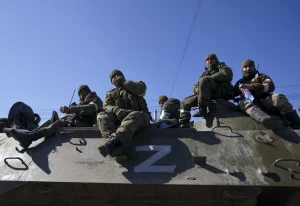
NATO warns of potential unconventional Russian attack leading to major losses
Senior NATO official James Appathurai has warned that there is a credible threat of an unconventional Russian attack on the Alliance, such as sabotage or arson, which could result in significant losses
He made this statement in an interview with Sky News.
Appathurai, who oversees NATO's strategy for monitoring and deterring hybrid warfare, emphasized the need for member states to establish clear boundaries with Moscow. This includes defining what level of gray-zone conflict could trigger a collective response, possibly involving military action.
He noted that the 32 NATO member states are already dealing with Russian hybrid attacks targeting Europe, the U.S., and Canada — attacks that have now reached levels that, five years ago, would have been deemed "utterly unacceptable."
A key concern is the rising number of “kinetic acts,” including damage to critical undersea cables, infrastructure sabotage, and explosive devices planted in aircraft cargo. These activities have surged since Russia’s full-scale invasion of Ukraine in February 2022.
“We can definitely count dozens. Up to 100 for sure. But then there's a lot of foiled plots,” Mr Appathurai, NATO's deputy assistant secretary general for innovation, hybrid and cyber, told Sky News.
When asked if any Russian hybrid attack could cross the threshold for NATO to respond under Article 5 — where an attack on one ally is treated as an attack on all — Appathurai expressed concern.
There’s a very real risk that such an attack could cause significant human casualties or serious economic damage, he added.
Appathurai’s team is currently updating NATO’s hybrid warfare strategy, initially drafted in 2015 when threats were of a different nature. The revised strategy will include plans for countering hybrid attacks from not just Russia, but also China, Iran, and North Korea, helping NATO assess these challenges more effectively.
The updated strategy, expected to be finalized at the 2025 NATO summit, will also focus on deterring aggression without inadvertently escalating conflicts.
- Meanwhile, NATO Commander for Transformation Admiral Pierre Vandie has stressed the need for the Alliance to possess long-range weapons capable of countering Russia’s new Oreshnik hypersonic ballistic missile.
- News











































